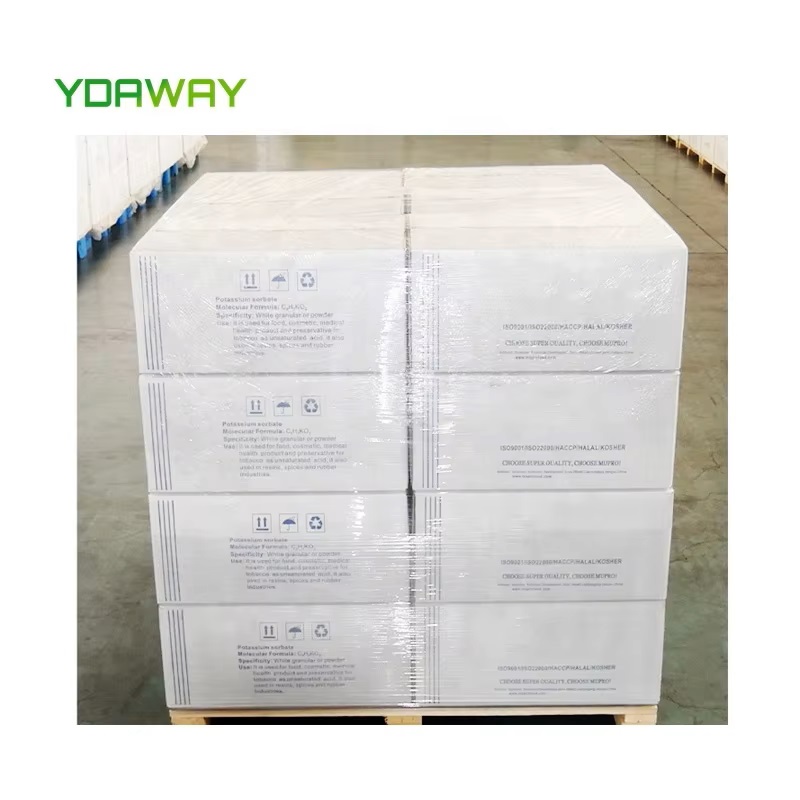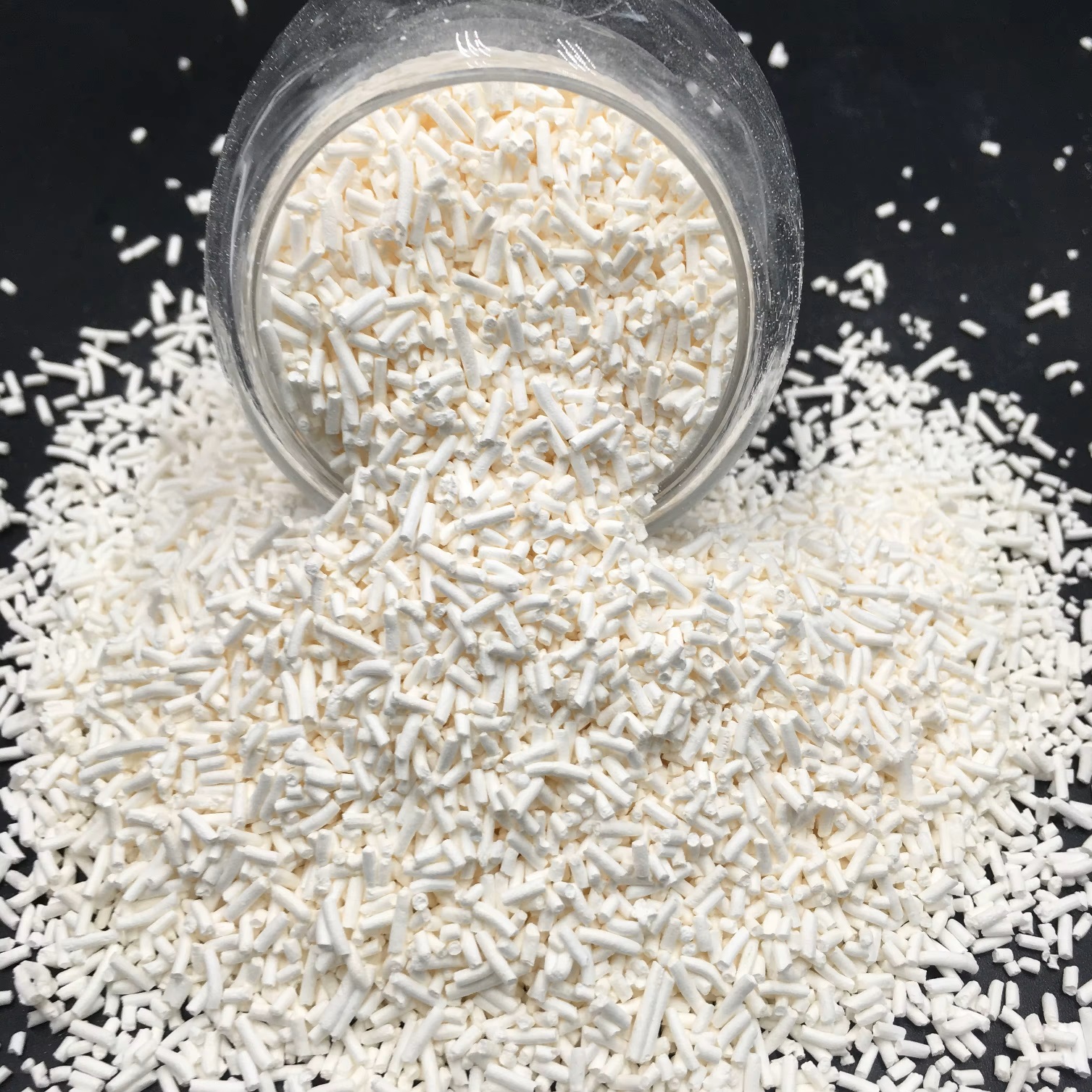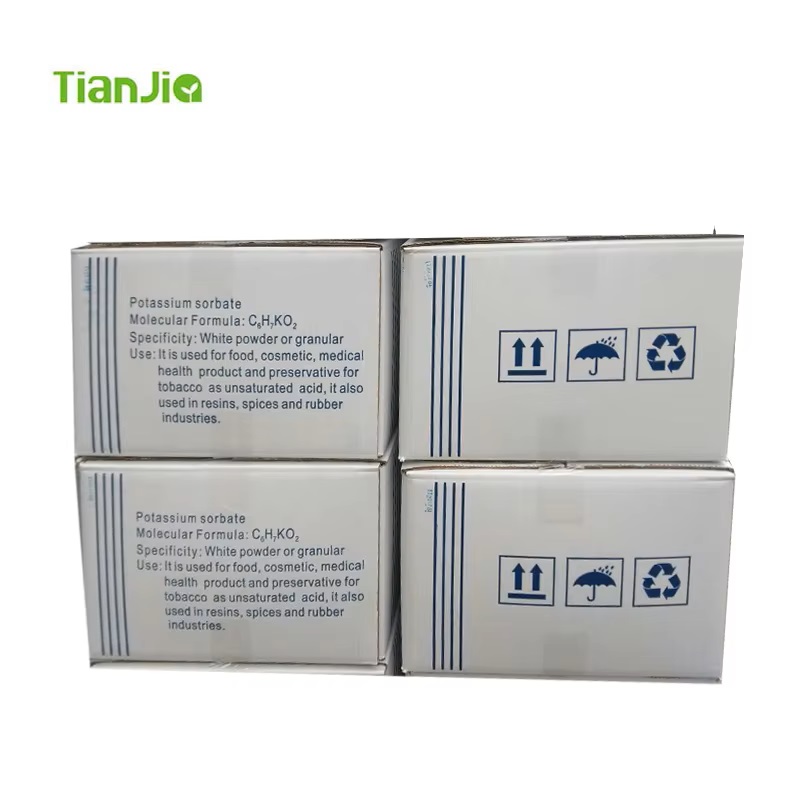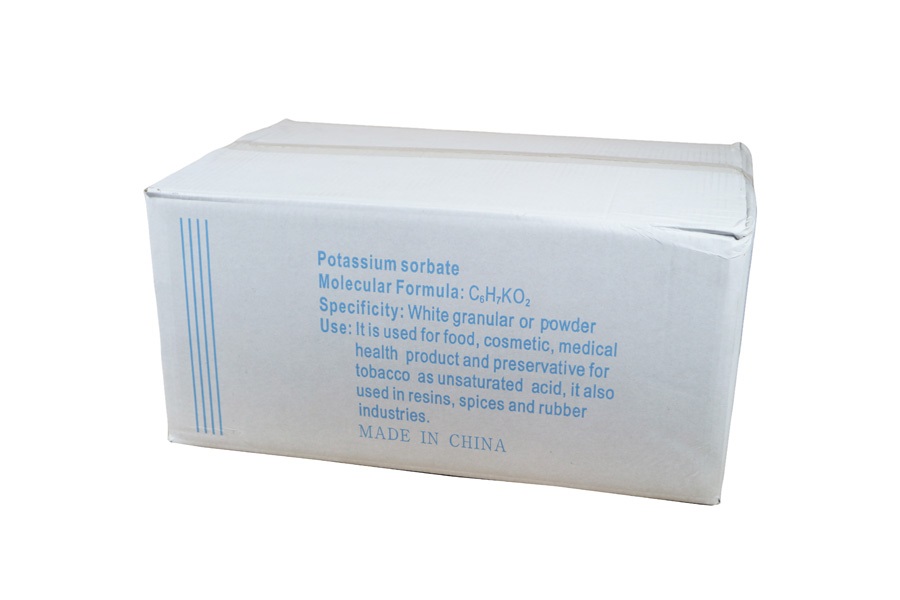We unleash your business potential by maximize the business innovation.
Send EmailE202, Potassium Sorbate, Sorbistat Potassium, Sorbate, 24634-61-5
Molecular Formula (Potassium Sorbate); C6H7KO2
Molecular Weight; 150.22 g/mol
Chemical Name; Potassium Sorbate
CAS Number; 24634-61-5
Potassium sorbate E Code is E202.
Potassium sorbate is a mold and yeast inhibitor and an antifungal chemical for cheeses. It is the potassium salt of sorbic acid, a naturally occurring and microbial compound. And is used as a preservative.
It is a mild preservative compound used as an alternative to paraben chemicals to produce cosmetics and skin care products.
It is more effective against bacteria compared to other food preservatives. Therefore, it is not considered a broad-spectrum preservative. In order to ensure complete protection of products, Potassium Sorbate must be used with other preservatives.
Other names of Potassium Sorbate are as follows;
Potassium Sorbate
Sorbistat Potassium
2,4-Hexadienoic Acid, potassium salt
Potassium 2,4-hexadionate,(E,E)
Potassium hexa-2,4-dienoate
Sorbistat-K
2,4-hexadienoic acid potassium
Sorbate
Potassium Sorbate Granular
Potassium Sorbate Physical and Chemical Properties:
Potassium Sorbate is a white or slightly cream colored chemical. It is available in powder and granular form. Its melting point is 270 ° C.
Its density is 1.361 gr/cm3. It dissolves in 20 ° C water, forming a clear liquid. Its solution becomes colorless and slightly yellow.
The stability of potassium sorbate is strong enough not to react with strong oxidizing agents. When heated to the decomposition stage, it releases toxic smoke from K20 into the environment.
It has a solubility of 2 g/mlt in ethanol at 20 °C.
Its solubility is 58.2 g/100 mlt.
Potassium Sorbate Usage Areas:
It is a common preservative chemical used in wine production. It is added in a form after fermentation is completed in wine production. Potassium Sorbate is used to prevent spoilage by yeasts and molds in a produced wine. In this application, it acts by preventing the proliferation of microorganisms. It is added to wines that have completed fermentation. In wine production, it ensures that the sugars added after fermentation end the fermentation process.
It is used to extend the shelf life of foods. The chemical effect in its use as a preservative in foods is due to the potassium salt of sorbic acid. The growth of pathogens is prevented with this effect.
It is used in cheese, yogurt, dairy products, margarines, sour cream and mayonnaise.
Potassium Sorbate is used as a preservative in the manufacture of ear drops.
Fruit products and dried fruits, including, contain Potassium Sorbate to prevent the potential growth of pathogens.
Beverages, acidified or fermented vegetables, salads, olives, smoked or salted fish, sauces, syrups and jellies may also contain sorbate.
Bacteria in wet wipes and the formation of bacteria in the moist layer left on the skin after the wet wipe is used is a serious problem. It helps to create a protective composition in wet wipes when used together with benzoic acid and salicylic acid.
It is used in the production of skin care products in the cosmetic sector. It is used to prevent deterioration in such applications.
It is used in cosmetic products produced as a protein source for the body, skin and hair.
It is used in face, eye and skin care products or in the formula of cosmetic care products.
It is used in the manufacture of drugs produced for the treatment of these disorders together with citric acid and some extracts to relieve gas pains in colic babies.
Potassium Sorbate is used as a preservative in the production of hard candies made from fruit juice.
It is used as a preservative in the production of dry food produced for animals.
It is used as a preservative in the production of disinfectant gel and ultrasound gel to prevent the formation of bacteria and to ensure that the gel has a longer shelf life.
It is used together with calcium propionate in the production of yufka by lowering the pH. In this way, it exhibits antimicrobial properties and prevents mold formation.
It is used together with sodium benzoate as a preservative in the production of fruit-flavored energy drinks, along with vitamins.




